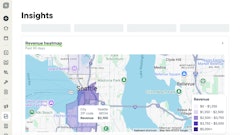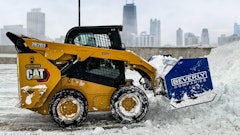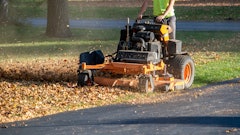
The world of sales is in flux. The game has changed, and the outdoor industry is no exception. Despite the fact that relationships are essential for business success, many companies prioritize numbers instead.
Case in point 1: Sales teams concentrate on revenue, market share and growth year over year.
Case in point 2: Marketing teams are preoccupied with generating leads, converting them into customers and minimizing the cost of acquisition.
Case in point 3: Customer support teams who are responsible for taking care of customers post-sale typically rely on metrics like ticket volume, resolution time and retention rate. This can (and does) feel impersonal and detached from the actual customer experience.
I’m not saying that digits don't count for anything, but here’s the real truth. All of these metrics are just a way to get to the real deal, the groove that keeps our customers coming back for more. It's all about delivering a customer experience that is unforgettable from the very first beat to the very last note. And let's not forget about building those soulful customer relationships.
Building strong, lasting relationships with customers should be at the forefront of every business's priorities, as it can drive repeat business and referrals, which in turn can increase revenue and market share.
And that ultimately means meeting sales quotas consistently. Let’s dive into it.
What about sales quotas: how much do they matter?
Sales pundits and outliers have time and again predicted that sales quotas are becoming obsolete.
There are varying opinions on this topic, with some believing that sales quotas will no longer exist in the next decade. I believe it's unlikely that sales quotas will disappear altogether.
Sales quotas serve as a way to measure performance, motivate salespeople and align sales activities with business objectives. As long as businesses in the outdoor services industry need to drive revenue and measure the effectiveness of their sales teams, quotas will likely continue to exist in some form.
However, it's possible that the way sales quotas are structured and measured could evolve in the future. For example, some companies are starting to shift away from quarterly or annual quotas in favor of more continuous, agile sales processes.
Additionally, there is a growing emphasis amidst commercial landscaping businesses on customer-centric selling, which could lead to a greater focus on relationship-building and customer satisfaction rather than solely on hitting a specific number.
Ultimately, the real essence of sales is coaching business developers (BDs) to sell a great service that makes their customers happy. If this is achieved, sales quotas will naturally be met.
Why do customer retention and renewal rates often suffer despite sales teams hitting quotas?
Did you know that, in B2B sales, 68 percent of customers are lost because of indifference or perceived apathy, not because of mistakes?
There are several reasons why customer retention and renewal can suffer, even when sales goals are met. Firstly, there may be a misalignment between the scope of work, customer expectations and what is currently being done on the site. You see, large gaps in alignment between these three factors can cause immediate issues to the customer and supplier relationship.
Training teams for complex B2B sales in the outdoor services industry
Sales teams from landscaping maintenance and construction businesses responsible for complex B2B sales can be trained to build rapport and exhibit empathy through consultative selling coupled with the challenger sales method.
This drives a perspective of guiding the customer versus showing up and throwing up. Attributes of a healthy relationship can and should be transferred to the sales process and relationship, including honesty, integrity, listening, and confirming pain, and needs. It is important to convey empathy and build strong partnerships as they can become the foundation of a long-term partnership.
The customer might think of them as nothing more than a bunch of dollar signs if you don't make an effort to engage with them.
Even though you might earn some sales that way, not much trust or confidence is developed. People who are just meeting you don't know you very well and will usually create an opinion of you soon away.
In the cut-throat world of outdoor service businesses with razor-thin margins, it's easy to fall into the trap of treating customers as disposable.
Yes, you are in constant need of new clients to sustain your business. And, in your search for new clients, you might be tempted to prioritize closing deals over building long-lasting relationships with your clients. You might focus on impressing them during the initial consultation, only to move on to the next client once the project is complete, leaving little room for continued communication and collaboration.
While this approach may help you secure some quick and easy business, it's not a sustainable or fulfilling way to build a successful career in the outdoor services industry.
To truly thrive in today's fiercely competitive market, landscaping companies must be committed to building meaningful, long-lasting relationships with their customers. It's not just about making a sale; it's about investing in the connection, showering your customers with attention, gratitude and flexibility, and always striving to keep the romance alive.
This approach is much more likely to lead to long-term, mutually beneficial partnerships that will help sustain your business over time.
Better ways to measure success when it comes to generating sales, consistently
When it comes to measuring success, there are various metrics, such as leads into the pipeline, fully qualified opportunities, and the revenue of opportunities proposed. However, the consistency of these metrics is crucial.
When it comes to building a reliable sales engine, I believe that pipeline $ (at any point in time) and pipeline conversion % (averaged out) can be the two best metrics.
Customer lifetime value (CLV), retention rates, renewals and repeat business are critical factors that businesses in the outdoor services industry must consider. CLV helps determine if the cost to acquire a customer is reasonable or feasible, while retention rates and repeat business provide a clear indication of customer satisfaction.
It is essential to delight customers by delivering exceptional services that lead to repeat business and referrals. Referrals can bring in a lot of high-quality business, but it is important to ask for them at the right time and in the right way.
Technology will definitely play a role in augmenting sales efforts
Technology is already making its mark in the outdoor services industry, enabling sales teams to focus on higher-value components of sales processes. By automating low-value tasks that bog down sales teams, technology is freeing up valuable time and resources that can be redirected toward higher-value components of sales.
In the ever-evolving world of business, technology is a game-changer that is leaving its mark in the outdoor services industry. With the help of cutting-edge tech, sales teams can now streamline their operations and elevate their sales efforts to new heights.
As an example, AI-based technology can now streamline the measurement process. With software designed specifically for the outdoor services industry, sales teams can create professional, customized bids very quickly.
By automating repetitive, manual processes, sales teams can spend more time interacting with customers, answering questions and closing deals.
The right mix of hitting the quotas + striking customer relationships will be your winning card
In conclusion, sales quotas will always exist, customer satisfaction should be the ultimate goal, empathy, and rapport building are essential, and consistent strategic activity is the key to success.
In the dynamic world of landscaping maintenance and construction, success hinges on a delicate balance between achieving your quotas and cultivating strong customer relationships. It's a high-wire act that requires equal parts finesse and fortitude, but when executed with precision, it can be the winning card that propels you to the top of your game.
In this industry, customer relations reign supreme as the most valued currency. It's the lifeblood that drives your business forward and sets you apart from your competitors. Every interaction with your clients is an opportunity to build trust, loyalty and a sense of partnership that will endure over time.
But don't be mistaken: hitting your quotas is equally important. It's the engine that drives your business forward, allowing you to meet your financial targets, expand your services, and stay ahead of the curve. Achieving your quotas requires a keen eye for detail, a relentless work ethic, and a commitment to excellence that will inspire your team to go above and beyond.
To strike the right balance, you must be impressive yet trustworthy: a master of the art of communication who can captivate your clients with your charm and expertise while delivering on your promises with the utmost reliability and efficiency.
So, go forth with confidence, armed with the knowledge that the right mix of hitting the quotas and striking customer relationships is what you need to conquer the world of landscaping maintenance and construction.



![Gravely Pro Turn Mach One My23 Dsc03139 Edit 1200x800 5b2df79[1]](https://img.greenindustrypros.com/mindful/acbm/workspaces/default/uploads/2025/10/gravely-pro-turn-mach-one-my23-dsc03139-edit-1200x800-5b2df791.BucBnDoN22.jpg?auto=format%2Ccompress&fit=crop&h=100&q=70&w=100)







![Gravely Pro Turn Mach One My23 Dsc03139 Edit 1200x800 5b2df79[1]](https://img.greenindustrypros.com/mindful/acbm/workspaces/default/uploads/2025/10/gravely-pro-turn-mach-one-my23-dsc03139-edit-1200x800-5b2df791.BucBnDoN22.jpg?ar=16%3A9&auto=format%2Ccompress&fit=crop&h=135&q=70&w=240)








